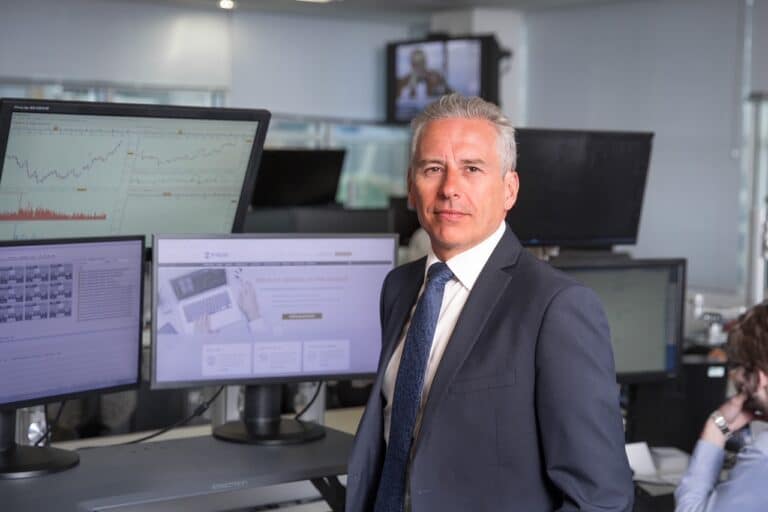
Will the Archegos fallout have a ripple effect on prime clients in foreign exchange?
By Justin Boulton, Head of FX Prime Brokerage, FXCM Pro
Now the thick cloud of dust is slowly settling following the collapse of Archegos, the industry is assessing the damage inflicted on the broader prime brokerage sector and particularly to small-to-middle sized non-bank financial institutions (NBFIs).
Archegos Capital Management, a family office that managed the personal assets of Bill Hwang, defaulted on margin calls from several global investment banks on 26 March 2021, triggering a USD 33 billion market-wide asset liquidation event.
Since Archegos’s collapse, Credit Suisse has started to reduce its prime brokerage operations, while other prime banks, including Morgan Stanley, Nomura and UBS, said they would review their stress-testing methodology and prime brokerage relationships.
To safeguard against another Archegos-style event, prime banks that had significant exposure to Archegos have reviewed – and tightened – their lending terms. While this is to be expected, history has shown that in many cases, it is to the detriment of small-to-middle sized NBFIs.
Furthermore, while the products traded were derivatives in this instance, a wider review may result in FX prime clients being affected, especially small-to-middle sized prime clients that are deemed unprofitable or potentially risky.
Banks tightening the credit belts
This is not the first time this has happened. In 2013, for example, Rabobank, exited the foreign exchange prime brokerage business, ultimately creating a void of lower end primary bank offerings.
More recently, in 2018, after USD 180 million was lost on an Asian hedge fund’s ill-fated currencies trade, Citigroup reorganised its prime brokerage business by placing its FX prime brokerage under the oversight of its prime finance and security services unit. This caused ripple effects throughout the prime brokerage sector and reduced or terminated market access to some small-to-middle sized NBFIs altogether.
These experiences, overall, led banks to reassess the eligibility criteria necessary to become a prime counterparty as they sought to minimise the credit risk to which they were exposed. The result was considerably tighter credit conditions and a reluctance from some banks to trade with small-to-middle-sized NBFIs.
This, in tandem with the dramatic increase in asset requirements, priced out small-to-middle sized institutions that were no longer able to meet the criteria.
Direct market access with centralised clearing
Today, however, small-to-middle sized NBFIs that have seen their credit relationships terminated can benefit from a more diverse and democratised trading environment that has been democratised by new market entrants as well as fintechs.
In particular, new operational models and advances in technology are making credit allocation easier and safer, with more data on relationships, risk exposure and early warning signs.
Additionally, the emergence of Prime of Primes (PoP) means small-to-middle sized prime clients can continue to receive the same quality of service with no material impact on their trading.
FXCM Prime, for example, acts as a neutral intermediary, providing direct market access with centralised clearing to small-to-middle sized funds, asset managers, family offices, retail brokers and high frequency traders.
Customers of FXCM Prime can connect to professional trading venues through a single account, leading to lower margin requirements and freeing up cash flow to be used in other operations.
When a customer connects through FXCM Prime, they are obligated to sign legal contracts with the external platforms and are subject to their rules. This allows them to have a direct relationship with individual platforms, but with the added benefit of being able to clear trades through FXCM Prime.
During previous episodes when tier 1 banks reviewed their credit relationships, we saw a surge in interest from small-to-middle sized NBFIs seeking access to the FX markets. Some of these had their relationships terminated, while others wanted to use FXCM Prime as a backup or alternative. It is very likely that something similar will occur again.
Overcoming the credit monitoring challenge
One of the biggest challenges for firms offering prime brokerage is how to manage credit lines efficiently across a range of platforms. To mitigate this risk, FXCM Prime is underpinned by unique low-latency software that conducts a pre-trade credit check on every trade that goes to the system.
As each user can connect to multiple platforms via a single account, the total number of open positions is closely monitored and any orders that exceed a user’s agreed credit line will be automatically rejected. FXCM Prime can therefore limit users’ total exposure, regardless of which platform, or platforms, they trade on.
FXCM’s custom back-office tracks and monitors every trade placed by a trader regardless of where they are trading. Customers can see their net positions across all venues in which they have open positions in near real-time allowing them to manage their portfolios more efficiently.
FXCM also completes post-trade credit checks to manage risk and ensure its customers continue to meet its strict criteria. Customers can access post-trade features and reporting for each of the venues on which they choose to trade.
Hopes are high for the days ahead
In the short-term, many prime clients will be holding their breath and hoping they are not victims of tighter credit conditions. But if you are a high-frequency trading firm, small-to-medium-sized hedge fund, proprietary trading firms, family office or small regional/emerging market bank, and receive an email, phone call or letter confirming the termination of tour credit relationship, do not lose hope.
The prime brokerage industry is in a much better and stronger place. Some banks will see this as an opportunity to win clients, while prime-of-primes like us are on standby and ready to help. We’ve been through this before, and we have the expertise, connectivity and industry knowhow to guide you through the process.
In the long-term, the industry will evolve, learn from its past mistakes and improve for the better. While it may not look like it now, prime clients will be the ultimate winners.
FXCM Pro, FXCM’s institutional arm, provides retail brokers, small hedge funds and emerging market banks access to wholesale execution and liquidity while providing high and medium frequency funds with access to prime brokerage services via FXCM Prime. For further information, please visit www.fxcm.com/pro.
FXCM Pro’s offering and services are intended for institutional and professional clients. Trading on margin carries risk.





